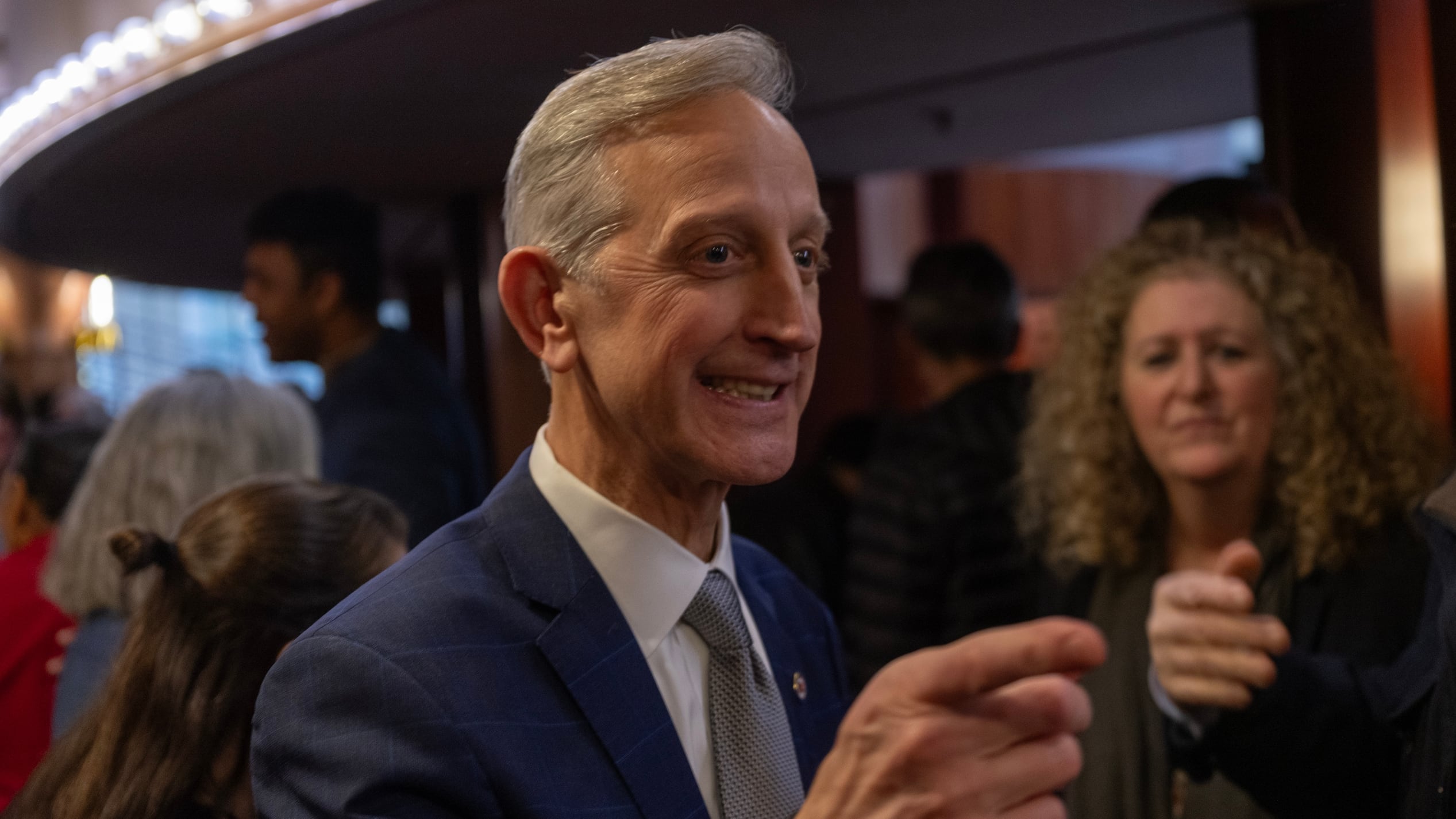In a recent meeting with Multnomah County officials, Portland Mayor Keith Wilson expressed growing frustration at the county’s response to the homelessness crisis.
During the July 18 meeting, Wilson seemed to take issue with the vagueness and repetition of the discussion around outcomes.
“We have got to flood the market with shelter to provide basic lifesaving care to address the crisis,” the mayor said.
“We do an awful lot of talking, but we have so much firepower in this room to make big swings and I think it’s time to shake things up,” Wilson added, his voice a little strained. “What are we doing today? I would like to see a more laserlike approach on outcomes.”
Wilson’s comments came during the July 18 meeting of the Steering and Oversight Committee of the joint city-county Homelessness Response System, a new blueprint that regulates the governments’ efforts to reduce homelessness.
The committee, comprising city and county elected officials, including Wilson and County Chair Jessica Vega Pederson, took most of the meeting to conduct an exercise using different colored stickers to show each of the committee members’ priorities for the new iteration of the homelessness plan.
After members placed stickers on different focuses, members discussed what they’d chosen. The meeting was like many preceding it: officials talking in often vague terms about what they wanted the city and county to home in on, what their long-term goals were, and whether a shelter-first strategy or a housing-first strategy was most effective for the current situation.
Wilson first showed his frustration when he said: “I’ve been very clear in the first eight months I’ve been here. We have to focus on the back end, which is housing. But we can’t take our eye off of the front end, which is shelter. We can’t let our streets be a destination, ever,” Wilson said. “We have got to flood the market with shelter to provide basic lifesaving care to address the crisis.”
Anna Allen, government affairs director for the Columbia River Inter-Tribal Fish Commission and a member of the committee, pushed back.
“Accountability for public dollars is investing in strategies that reduce homelessness, not just moves it,” Allen said. “In east county, what I hear is that shelter really isn’t the strongest way. I believe in upstream preventive measures. The high visibility areas like downtown, a strategy that centers shelters could be a solution. But out in east county and Gresham, that looks really different.”
The comments by Wilson and Allen fit into what has historically been a point of contention between county and city leaders: whether shelter or housing should be the first priority when trying to decrease homelessness. Ending, and even reducing, homelessness has seemed like an increasingly unachievable goal for the city and county. The most recent point-in-time count reported that 3,944 people slept unsheltered on Portland’s streets, while another 2,300 found respite in a shelter or in transitional housing.
While leaders in recent years have tried to avoid the shelter-housing binary by saying that both pieces are critical, the once-dormant dispute has bubbled back up due to Wilson’s plan to add 1,500 shelter beds by the end of the year, which he’s begun to act on by opening three shelters. Three more are in the works, including one that’s stirred controversy in the Pearl District. Wilson secured funding for his new shelters in the current city budget with funding from Metro and the state. The county did not chip in for the mayor’s shelter plan.
Wilson said the city and county needed to set shorter-term goals.
“It’s so we can turn to [deputy director of the Homelessness Response System Ryan Deibert] and [Anna Plumb] and say, what’s your plan? What’s your 30-day and 60-day? We need to be down to the ground with those outcomes,” Wilson added. “With all due respect to Anna and Ryan, it puts pressure on the system because you have to answer on an outcome.”
Matt McNally, a spokesperson for Vega Pederson, says the county is committed to reducing homelessness and is “continuing despite very real cuts to SHS, our general fund, and state revenue (unexpectedly). That reality has led the County to prioritize funding to: keep existing shelters open wherever possible, keep people currently housed through our assistance in their housing, [and] move people from shelter back to housing to use the shelter beds we have more efficiently for more people.”
McNally pointed to the county’s help in funding the 200-bed shelter operated by the Salvation Army as one example of the county’s assistance. He also pointed to $15 million in Metro money that the Multnomah County board of commissioners approved to send to the city for Wilson’s plan. (Metro voted first to approve the funding. The county commission also had to approve it, as money from Metro’s homeless tax flows through the county to the city.)
“There is not enough ongoing revenue to pay for the full scale of shelter and services that we all desire. Our strategies have included a significant investment in shelter expansion in partnership with the City over the past 5+ years,” McNally said. “We share the Mayor’s sense of urgency and concern, but that doesn’t change the fiscal reality Multnomah County is functioning in.”
As the meeting drew to a close, Wilson spoke out one more time.
“Recently, we had a person die on the streets of Portland, found behind a dumpster, riddled with maggots. This is more important than a conversation. This is about immediate action. We have to shake things up. When I go into my office, I close the doors and I cry,” Wilson said. “ I want you to understand this isn’t about an exercise. This is about us collectively bringing our firepower to supercharge the efforts in this city now.”

